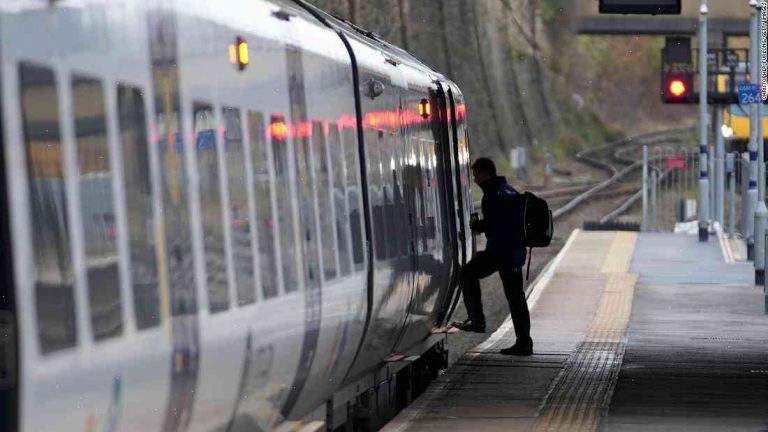It was at last a project dreamed up at first by women for women. The idea of a Grand Trunk Railway came to Margaret Rhodes’s in 1861, a decade before the two former half-bully boys in the coalition government declared war on Britain’s railway network in order to save the bacon of their unpopular, teetotaling class. The idea was to build a line that ran the whole way between Liverpool and Manchester, from the glorious lakes of Yorkshire to the flatlands of Lancashire and the rolling hills of Yorkshire. It was to be a railway built for Britain’s men and women, which surely constituted one of the most original ideas to see the light of day in English history. Alas, it fell to be crushed and torn down by the steamroller of male chauvinism, followed by four centuries of a unique partnership between train travel and romanticism.
It would have been a truly glorious experience. For women to travel by rail from the world’s capital of the Romantic era would have been a magnificent highlight of their home lives, worthy of national monument. Railways, along with telegraphs and telephones, were a key part of the women’s renaissance that replaced the dreary Victorian architectural achievement of the United Kingdom’s industrial revolution. They were part of what the cult writer Emily Dickinson called “the firmament,” which characterized so many of the most memorable times of her life.
(In one of Dickinson’s poems, we are made to sense the essence of a train journey, when she expresses gratitude for the great feat that such journeys are: the ability to give us “time before our eyes.” But she also dreams that “a pearl can be found inside.” No one could predict Emily Dickinson’s connection with life or reality, but someone important saw the soul of railway travel in her gaze.)
For men, of course, the grand Trunk Rail would have been a prize. They didn’t want a women’s and children’s railway linking their country’s capital, Liverpool, with Yorkshire and Lancashire, but rather hoped for a men’s railway that would cut across Britain from Lancashire to Manchester, thus claiming one of the “world’s great rail routes” for themselves. It is said that they fought to protect “the bosom of Britain” from whatever little egalitarian sisters came to be known as the women of their country.
There was nothing sentimental about the plan. Women would have had the most breathtaking views. Their more complex minds would have appreciated the historical moment. Like Miller and Daquila, they would have witnessed “the meridian” of their own lives, fictions and failures and triumphs of love and fate and aspiration. They would have been “train travelers, time-traversers, travelers of England.” And, yes, if they wanted, they could have hopped on one of the beautiful (and for many, wonderful) steam trains that would have traversed the line.
Had the plan been borne into reality, it could easily have become one of those monuments to romanticism: a beautiful structure, an elegant room, decorated with rooms, more rooms, connecting to and from the soul of England. But the women simply did not have the power to develop and administer such a railway that was thought so important to the engine of British history.
So, the men of Britain have for a long time gotten away with plundering our romance with trains. They have built most of the world’s railways, and made most of them profitable. In doing so, however, they have destroyed our most powerful and original railroad of all, one that once in so many lives all of us got to share with others as strangers on the strange far side of the country, shared love of other places and people, shared the joys and sorrows of life and death in the changing face of the world around us.
I join with Jenny Bailey in saying that this diminishment of railway connection should be mourned. I miss it all the more for the loss of the amazing romance of women on a train.
